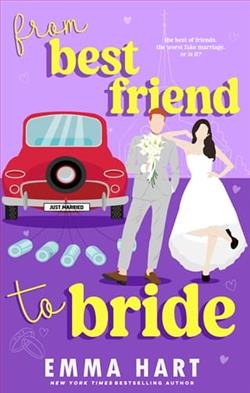Page 62 of Twins for the Off-Limits Lawyer
"And Edward?"
"Is your brother. He always will be." I met her gaze steadily. "But we're not friends anymore, Daphne. We can't be. Not after this."
She nodded again, then walked toward the door with the careful dignity of someone trying not to shatter completely. "Goodbye, Lili. I really did love you like a sister."
"I know," I said quietly. "But sisters don't use each other. Goodbye, Daphne."
I watched her leave, then sank back into my chair, emotionally exhausted.
Through the conservatory windows, I could see her crossing the garden, heading toward the main house with determined steps. She didn't look back.
Twenty minutes later, I saw Edward emerge from the library wing, moving in the opposite direction toward the stables. He was too far away for me to see his expression, but something in his posture suggested he was carrying his own burden of revelation and consequence.
As I watched both of them disappear in opposite directions—Daphne toward the house that had shaped her into someone who could orchestrate love for her own convenience, Edward toward whatever refuge he sought when family obligations became unbearable—I realized that the manor's gardens were a perfect metaphor for our situation. Beautiful on the surface, but underneath, a carefully controlled environment where nothing grew wild, nothing bloomed without permission, and authentic emotion was pruned away the moment it threatened the perfect design.
All of our secrets were finally out in the open.
And none of us had survived the explosion intact.
CHAPTER 15
Edward
"Ithought you should see this before it appears in tomorrow's papers."
Mother's voice was perfectly composed as she slid the photograph across my desk, her manicured fingers never touching the glossy surface. I looked down to see myself and Lili caught in what appeared to be an intimate embrace outside the small bistro in Covent Garden.
My stomach dropped as if I'd stepped off a cliff. The photograph was so clear, so perfectly composed, that I could see the expression of tender vulnerability on Lili's face—an expression meant only for me, now exposed for public consumption.
The image was damning in its clarity. Lili's face was turned up toward mine, my hand cupping her cheek with unmistakable tenderness. To anyone viewing it, we looked like lovers stealing a private moment, completely oblivious to the telephoto lens capturing every detail.
The expensive paper felt heavy between my fingers, weighted with implications that could destroy everything I'd built.
"Where did you get this?" I asked, though my legal training had already begun cataloguing the implications. The angle, thetiming, the professional quality of the shot—this wasn't some lucky paparazzi accident.
"Does it matter?" Mother settled into the chair across from my desk with the same graceful precision she'd exhibited my entire life. "What matters is that by tomorrow morning, every gossip columnist in London will be speculating about the Grosvenor heir's romantic entanglement with an American television personality."
I studied the photograph more carefully, noting details that confirmed my growing suspicion. The photographer had been positioned perfectly to capture both our faces, had waited for the exact moment when our body language would appear most intimate. This wasn't opportunistic journalism—this was orchestrated surveillance.
"You had us followed."
"I had you protected." Mother's correction was delivered with the kind of cool authority that had shaped my childhood. "The photographer has been documenting your activities for three weeks, Edward. I have images of every clandestine meeting, every stolen touch, every moment you thought was private. This particular photograph was selected because it tells the most compelling story—the besotted lawyer compromising his professional integrity for an unsuitable woman."
"By hiring photographers to stalk us?"
"By ensuring that when your poor judgment inevitably became public knowledge, the family would be prepared to manage the fallout." She gestured toward the photograph with distaste. "Though I admit, I didn't expect you to be quite so obvious in your displays of affection."
The clinical way she discussed our relationship—as if it were a business problem requiring strategic management—ignited something dark and protective in my chest. "You orchestrated this entire situation."
"I orchestrated nothing. You chose to involve yourself romantically with a woman whose company your firm is acquiring. You chose to compromise your professional integrity for the sake of an inappropriate infatuation. I simply documented the consequences of those choices."
This was vintage Mother—presenting impossible choices while maintaining plausible deniability about her own role in creating the crisis.
She'd perfected this technique during my childhood: engineer a situation, then position herself as the reasonable voice offering solutions to problems she'd created.
"And now you're weaponizing the documentation."
"I'm offering you an opportunity to control the narrative before it controls you." Mother leaned forward slightly, her blue eyes sharp with calculation, "The photograph will be published by somebody else eventually. The question is whether you'll be prepared with an appropriate response."















